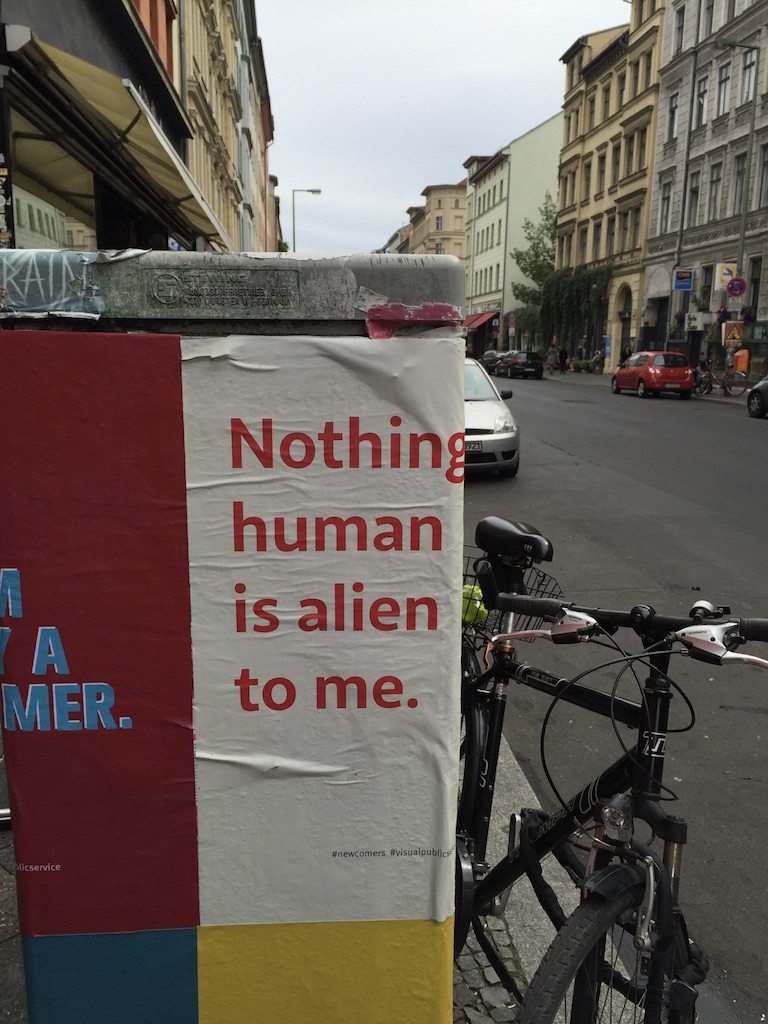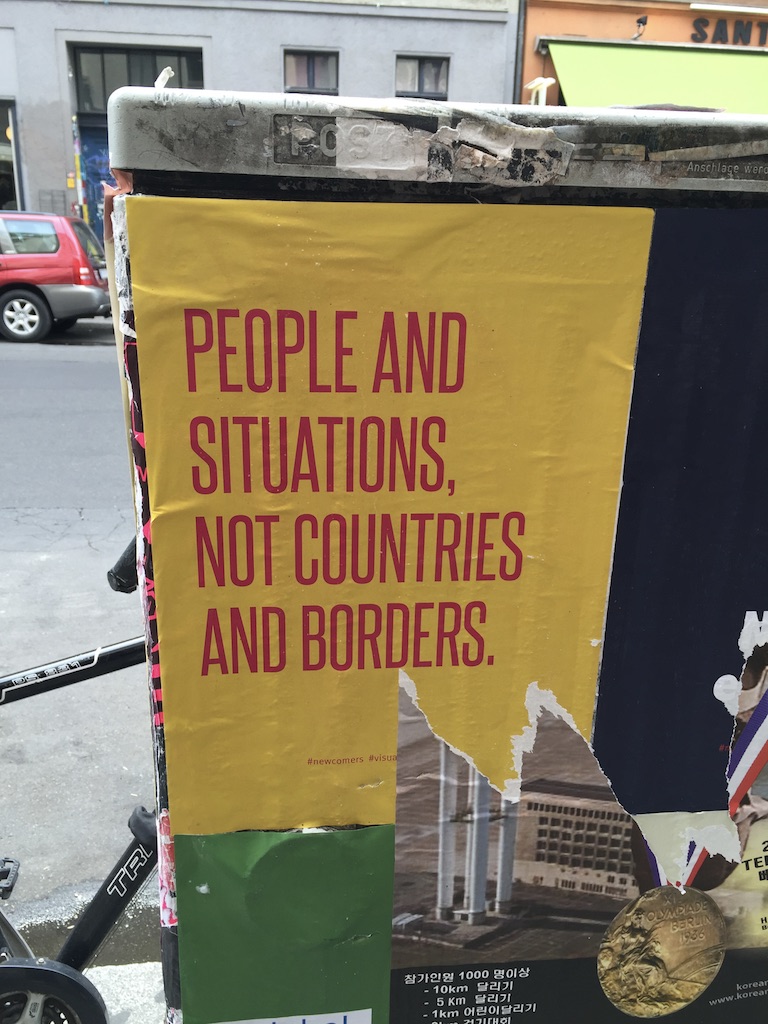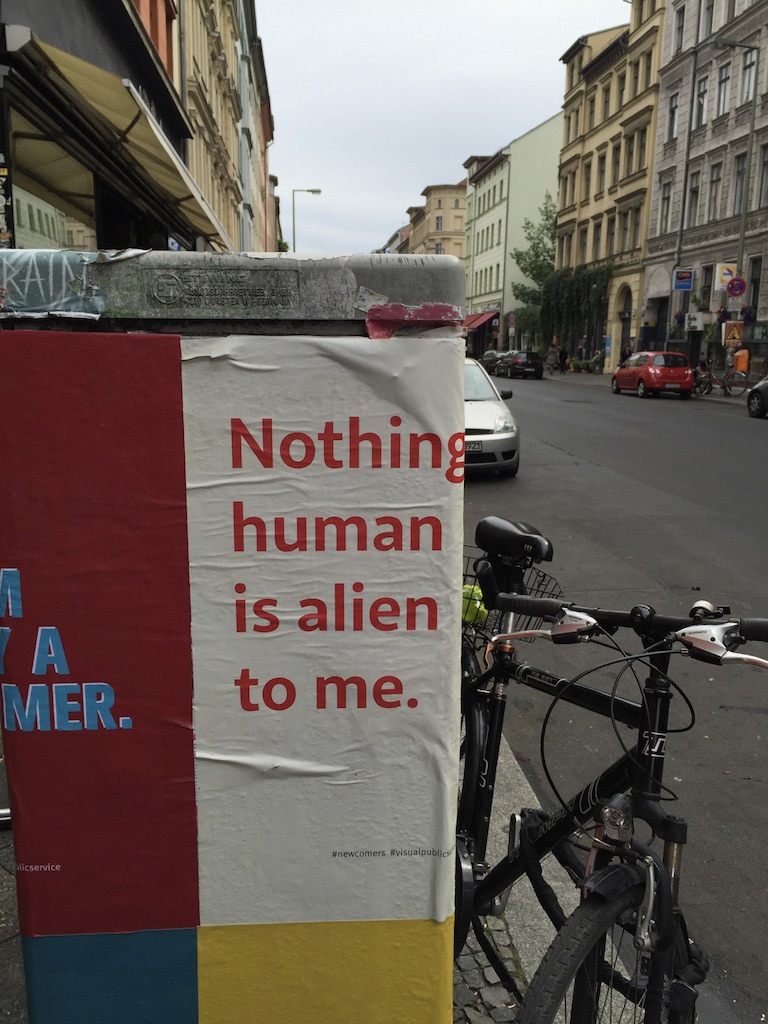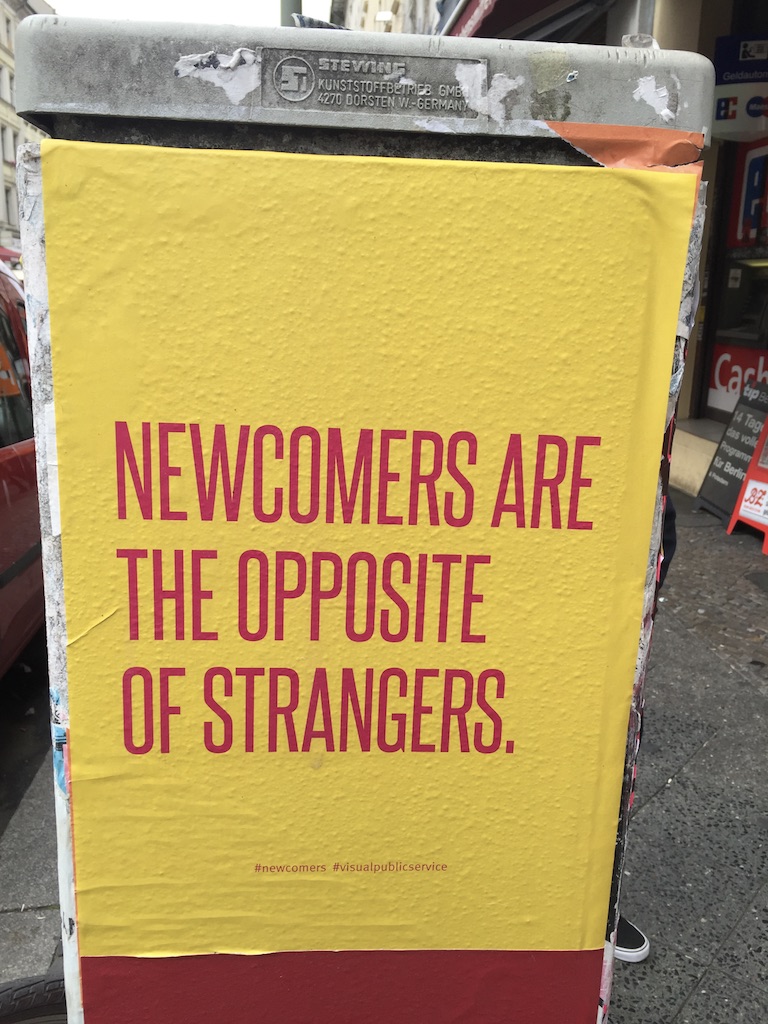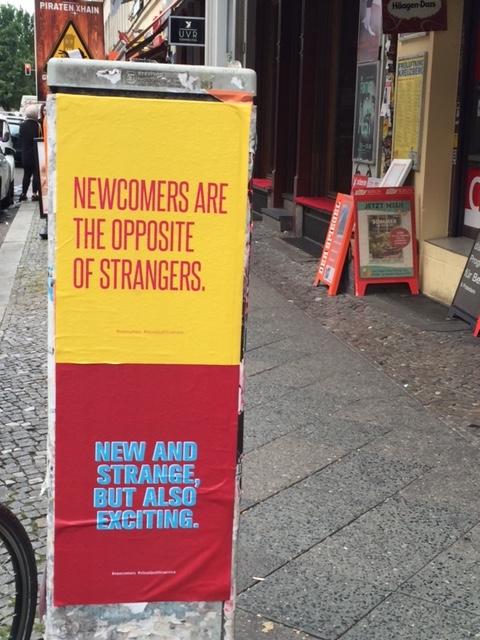Our research suggests another policy proposal as more successful: that of transgressive cosmopolitanism. At its core, transgressive cosmopolitanism is based on the idea of individuals engaging with one another, not by ignoring or transcending particularities, but by being motivated through them to open oneself up to the other and to the experience of being transformed by the exchange. In contrast to more restrictive government policies, a variety of civil society and grassroots initiatives have emerged across Europe sharing the aim of welcoming newcomers.
These initiatives share the goal of finding alternative ways of living together in diverse societies. Motivated by a desire to show solidarity with newcomers, these initiatives demonstrate enormous creativity in imagining different ways of fostering pluralism in an environment that has largely become hostile to the arrival of newcomers.
Growing pluralism is the reality of most societies. Learning to live with difference in diverse societies has thus become one of the most pressing political and policy challenges of the twenty-first century.
Over the past several years, right wing and populist movements have emerged and strengthened across Europe and North America. Yet, at the same time, greater numbers of migrants and refugees are on the move in search of protection. According to the United Nations, more people today are refugees or internally displaced persons than at any other period over the past 20 years with some 244 million people now living outside their country of origin. Contributing to these high numbers is the Syrian war, now in its seventh year, which has displaced more than 12 million people, many of whom are seeking protection on European territories.
Confronted with such challenges, however, many European governments seem unable or unwilling to provide leadership and policies to address the various anxieties that xenophobic movements and populist political parties seem so adept at exploiting.
Many European governments have favored one of three policy approaches to deal with diversity within their countries: multiculturalism and increasingly either forced assimilation or restrictive border controls preventing the entry of newcomers altogether.
